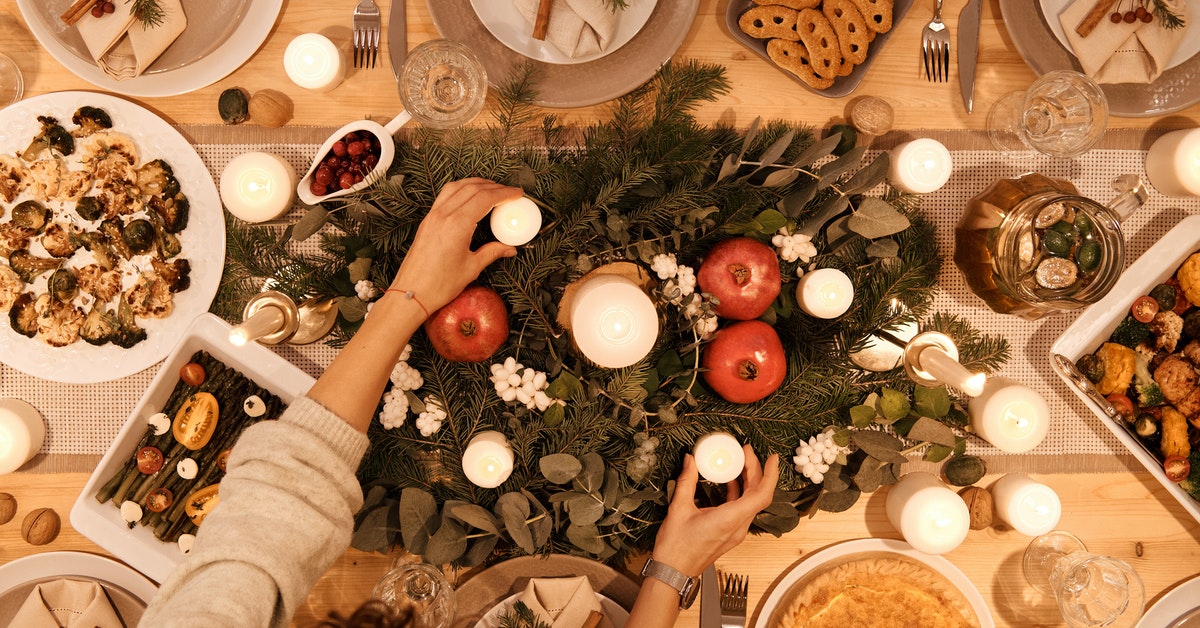The holidays come with many extra activities and obligations. Even though these make the season fun, they can also make it stressful. Women are especially prone to holiday stress because they are usually responsible for the lion’s share of the cooking, cleaning, shopping, and entertaining that comes with the season. Unlike many other life stressors, holiday stress is predictable. This makes it easier to prevent and cope with. Here are four ways to find some zen this holiday season:
1. Embrace Minimalism
Holiday stress often comes from having too much to do. Cutting out some of these tasks can make the holidays less stressful and more enjoyable. One good strategy is to make a list of things that you and your family feel must happen during the holidays. Then figure out the easiest ways to make those things happen, and don’t worry about the stuff that didn’t make the list. Consider creating a baking exchange with friends or family, where everyone makes one thing and shares it. If trying to see your family and your in-laws all in one day is too hectic, try to rearrange the schedule or have them over to your house instead. It’s not cheating to order a ready-made dinner or buy a pie from the store. Remember that your peace of mind is more important than a Pinterest worthy holiday party. A stressed host is usually not the best host.
If money is a major stressor for you during the holidays, consider cutting back there as well. Talk to your partner and make a budget for your holiday expenses, including gifts, dinners out, and special activities. Pick a number you both feel comfortable with and then stick to it. You will thank yourself later when you aren’t starting out your New Year in debt. Homemade gifts are often even more appreciated than store-bought items, and they are inexpensive to make. Consider a cookie mix or hot cocoa mix in a jar, homemade bath salts, or handcrafted Christmas tree ornaments.
Entertaining friends and family (for those who can do so safely this year) can be one of the most stressful parts of the holidays. Usually, entertaining stress comes from expecting too much of yourself and feeling that people won’t have fun unless every detail is perfect. Most people won’t be critiquing your table setting or judging the dust on your shelves. Try to let go of perfectionism and focus on what really matters: enjoying the people in your life.
2. Be Open to Change
Many people feel anxious and depressed when holiday traditions change. A good way to combat this is to find a few things you want to hang on to and be open to changes in other traditions. Change is inevitable as families grow and evolve. Sometimes these changes lead to new favorite traditions.
Mental flexibility is a key factor in stress management. People who are more flexible tend to cope better with stress than rigid people. Flexibility is a skill that can be developed. You can practice being more flexible by trying to find creative solutions to problems, looking on the bright side when things don’t go your way, and forcing yourself to try new things.
This year we have all had some changes to our holiday traditions forced on us by the coronavirus situation. Not being able to see friends and family can be difficult, especially if you live alone. Fortunately, this change is temporary. For now, phone calls and video calls can help to bring a bit of the holiday spirit into 2020. If you are struggling with loneliness this year, the next two tips can help.
3. Make Time For Self-Care
Even though technology can help us keep in touch from a distance, it’s not a perfect replacement for in-person interaction. If you are feeling extra lonely as the holidays approach, experts say that mindfulness and self-care can help. Try to make time every day for activities you enjoy. This could be pursuing a hobby, listening to music, reading a book, or taking a walk. Let yourself be completely in the moment and make it your goal to relax.
Sometimes the way we frame things to ourselves can make a big difference. Focusing on what we can’t do this year only exacerbates loneliness and depression. Looking on the bright side– for instance, noticing that you have some extra time for yourself this year–can boost your mood. Listening to podcasts or joining online communities where you hear about people going through similar things can also help you feel less alone.
Eating a healthy diet, staying on a regular sleep schedule, and being active are good for you all year round. These things are especially important during times of extra stress. Exercising for at least thirty minutes five times a week will boost your endorphins, feel-good hormones that ease depression and anxiety.

4. Give Back
No matter what your holiday plans look like this year, giving to charities can help you feel better about the season. People experiencing holiday depression or loneliness often find that giving makes them feel like a part of a community, and boosts their mood and self-esteem. Finding out about people around you who are in need can also help you to feel more thankful for the blessings in your life. Gratitude is associated with better mental and physical health, stronger relationships, and even better sleep.
You don’t need to feel pressured to donate more than you can afford. Canned food, used clothes, and small bills can make a big difference. Food banks are especially struggling this year, as the pandemic has led to fewer food drives and increased need. Even though many things are shut down, charitable organizations need volunteers. These organizations follow CDC guidelines and can be a safe way to get some social interaction while doing good in your community.




